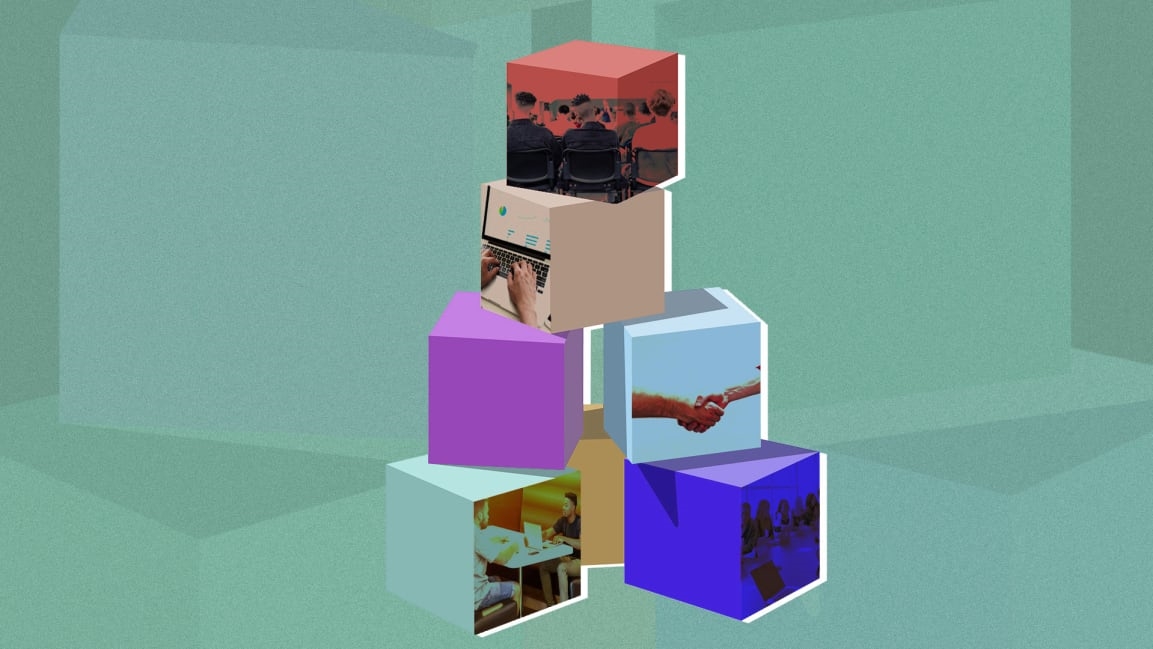8 tips to build, maintain, and leverage your professional relationships
By Sachin Waikar
“Building relationships is not just a critical career skill but a critical life skill,” says Rebecca Zucker, Stanford Graduate School of Business alumna and partner at leadership development consultancy Next Step Partners.
“One of the biggest mistakes people make is to bifurcate their personal and professional relationships,” she continues. “Our relationships are our relationships. They actually help us live longer, so they’re important not just to our careers but to our health.”
Here, Zucker, who earned her MBA in 1994, provides interrelated best practices and perspectives for building, maintaining, and accessing your network of relationships for your benefit and that of others.
Take a broad approach
“Never assume who will or won’t be helpful,” Zucker says. The mentality supports taking as broad an approach as possible to building relationships by putting yourself out there, across settings.
Zucker, for example, followed her own advice while in business school: “Every time I was on a new group project, I’d go up to people I didn’t know and invite them to be in my group. That ensured I met those I didn’t already know. Besides, who wouldn’t want someone to come up and say, ‘I want you to be in my group’?”
Similarly, an acquaintance of hers ultimately got to an interview with Uber—because his spin instructor’s husband knew the Uber hiring manager for a position he was interested in.
Momentum is multiplicative
One of the benefits of making an effort toward relationship building is that the effects tend to build on one another, creating momentum that can lead to fast network growth.
Zucker says, “Whether you’re looking for clients or a new job, if you get introductions to new people, they can then introduce you to others, and you’re more likely to find what you’re looking for. Getting one ball rolling in your search leads to others.” It adds up to potentially multiplicative growth.
For example, Zucker introduced one of her clients to a former colleague for an informational interview. The two hit it off, and the ex-colleague quickly introduced the client to multiple others who could be of help in her search.
Harness the strength of weak ties
Zucker points to often-cited research by Stanford sociologist Mark Granovetter on the value of “weak ties”—acquaintances, friends of friends, and the like—versus people we know best. She says, “He found that people who relied on weak ties in their job searches ultimately found better, more satisfying work.”
Why? “Our strong ties have much of the same information we have,” Zucker says. “But the weak ties can provide new information and bridge us to new networks. The research was pre-internet, but it holds in the post-LinkedIn era too.”
Reaching out to weak ties can also benefit those looking for career pivots. As Zucker notes, “If your strong ties know you as a capable salesperson but you want to move to a different area, weak ties won’t have those pre-existing ideas about your skill set, so you can position yourself differently to them.”
Don’t be afraid to reconnect
It can be easy to talk yourself out of contacting those you’ve lost touch with, even if they might be helpful to you today.
Don’t give in to that fear, Zucker says. “Don’t be afraid of a ‘no.’ Put something like ‘Blast from the past’ or ‘Reconnecting’ in the email subject line. Acknowledge the absence of contact. They most likely haven’t reached out either and may be pleased to hear from you. Make sure you don’t sound desperate or entitled, and always give the other person an out—such as ‘if it’s not a good time for you . . .’ “
Zucker herself came across the email of a network contact she hadn’t been in touch with for five years and sent a brief invite for coffee. They met soon after, and Zucker’s firm is now doing a large consulting project for that contact’s business.
Identify yourself
You wouldn’t leave a voicemail for someone without making clear who you are and the nature of your connection. The same courtesy applies to online relationship building.
“I’m part of a community of recognized experts, so I get a lot of inbound LinkedIn requests from people whose names I don’t recognize,” Zucker says. “I’ve requested that people take the additional 10 seconds to write an intro note like ‘I’m also part of this expert community’ or ‘I read your article in this publication and found it valuable.’ Make sure people know where you know them from.”
Do double opt-in introductions
If you’d like to connect two people in your network, it can be tempting to fire off an email linking both parties. Resist that temptation!
Related to the previous tip about identifying yourself, here it’s about providing context for people. “I’ve received blind introductions with no background,” Zucker says. “It’s not great, and it can create awkwardness. Do a double opt-in by checking with both parties to make sure they’re interested and explaining why it makes sense for them to connect.”
Aim for diversity—and evolution
“Diversity is really important in relationship building,” Zucker advises. “It’s important to be regularly connecting with people from different demographic backgrounds. You can learn a ton.”
This can apply to diversity of industries, function, geography, and others. One example is when younger and older people connect. “An older client of mine got great feedback on his résumé from a younger person in the tech industry,” Zucker says. “He helped my client understand what would or wouldn’t speak to particular companies my client was targeting, to help him position himself.” Her client, in turn, brings valuable experience and maturity to his network.
Zucker also notes the importance of evolving your network as your career progresses: “Periodically examine what’s working and what’s not in your network—where might you be over- or underinvested? If you’re in consulting and all of your contacts are too, but you want to move to another field, that has to change. Or it could be that you need to connect with senior-level people as you look to move up in your field.”
Think beyond yourself
Ultimately, networking, like many other professional activities, is about looking beyond yourself.
“It shouldn’t be mostly about self-interest,” Zucker says. “It’s thinking things like ‘What can I do for this person? How can I help?’ “
One of the best things you can do, she suggests, is to build your network to be a connector for others: “Generosity is a critical part of networking—being able to offer something others find helpful.”
In the end, the key is to think of networking not as a professional skill but a life skill, one that should be carried out with respect, care, and generosity. When you approach relationship building that way, it’s sure to pay off across domains.
This piece was originally published by Stanford University Graduate School of Business.
(13)



